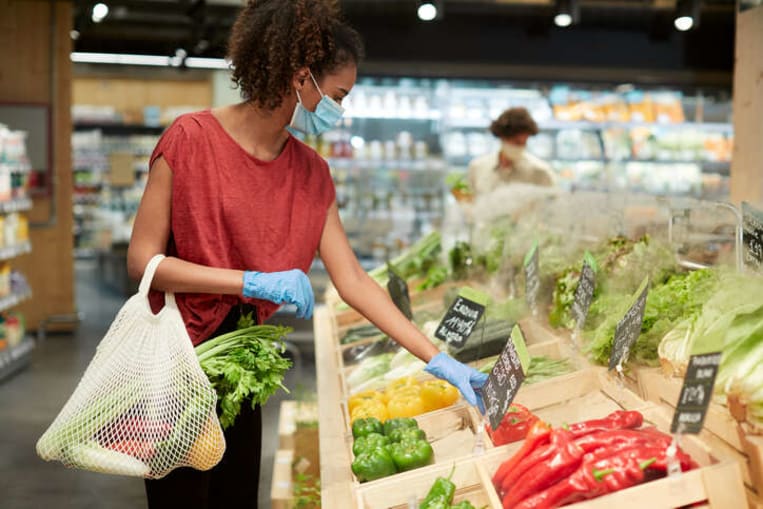
BBB Tip: How to shop green at the grocery store

(Getty Images)
In theory, eating “green” should be an easy way to consume a healthy diet while protecting the planet. In reality, shopping for food that’s good for the environment involves deciphering marketing buzzwords and understanding seals and certifications.
Before you hit the supermarket, here are BBB’s tips to ensure the foods you buy are really good for the environment—and part of a healthy diet.
- Understand what “organic” means. Whether a product carries the USDA Organic seal or simply uses the word "organic" on the product label, by United States federal law it is required to meet the USDA standards on how foods are processed, crops are farmed, farm animals are raised, and which types of ingredients are used in the final product. In Canada, the Canadian Food Inspection Agency regulates use of the Canada organic logo, which has very similar standards to that in the U.S. Learn more about what exactly “organic” means in this article from Consumer Reports.
- Get to know green marketing terms. Many green marketing terms, such as "pesticide-free," "non-toxic," "free of," "biodegradable," and "made with renewable energy," are unregulated and, therefore, not very meaningful. The Federal Trade Commission makes this recommendation: “When you shop, look for specific information on packages and products that explains why the product is getting a green promotion.” If a product doesn’t include details about what exactly the term means, choose another one.
- Look for legitimate seals. Third-party organizations, like Forest Stewardship Council, TransFair USA, and Rainforest Alliance, certify that specific types of products are grown or produced in an eco-friendly manner. For example, for meat and milk from cows who have been 100 percent free-range grass grazers their whole life, you should look for products with the American Grassfed seal. Real Simple covers top eco-friendly labels and what they certify.
- Minimize your intake of processed foods. World Wildlife Fund reminds consumers that because of emissions created and nutritional quality lost in the process, “the more processed a food is, the greater its environmental impact.” So cut back on processed foods where you can, and up your intake of fresher/minimally processed foods to reduce your impact on the environment.
- Look for environment-friendly packaging. How food is grown or produced isn’t the only concern of environmentally conscious shoppers. Product packaging also matters. Products labeled as biodegradable or compostable should provide specific information, such as how quickly packaging will biodegrade in a landfill. Alternatively, choosing products with recyclable packing can reduce the amount of waste that ends up in a landfill in the first place. However, keep in mind that certain kinds of recyclable packaging may not be recyclable in your area. You can find out about local recycling options from your city or county government. See the recycling seals and what they mean.
- Bring reusable grocery bags. Instead of loading your purchases into plastic grocery bags you’ll simply throw away when you get home, bring reusable grocery bags to reduce your impact on the environment. Alternatively, some grocery stores offer consumers the options to bring used plastic bags back to the store after use for recycling.
- Avoid wasting food. To fight food waste, GreenAmerican.org recommends planning your meals, storing your food properly, canning or preserving extra produce, and sending extra food to food pantries for those in need. Reducing waste is always good for the planet.
See BBB's tips on going green on our GreenHQ at BBB.org/green.
Go shopping for your own home garden with our tips.
Read about BBB Accreditation Standards and BBB Standards for Trust.
Still Need Assistance?
Contact Your Local BBB
Your local Better Business Bureau can assist you with finding businesses you can trust. Start With Trust®.
Additional Resources
Central Ohio BBB Business Podcast